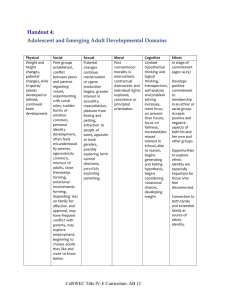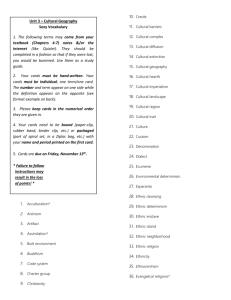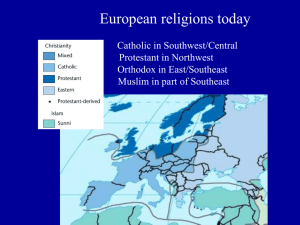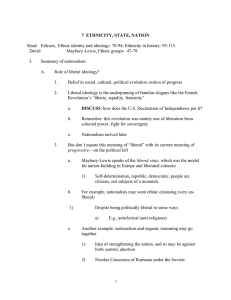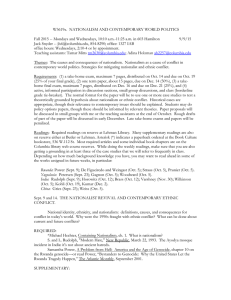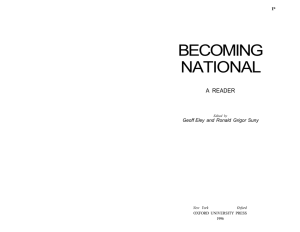Excerpts from Journal Reviews 2014-2015 University of Pennsylvania Press
advertisement
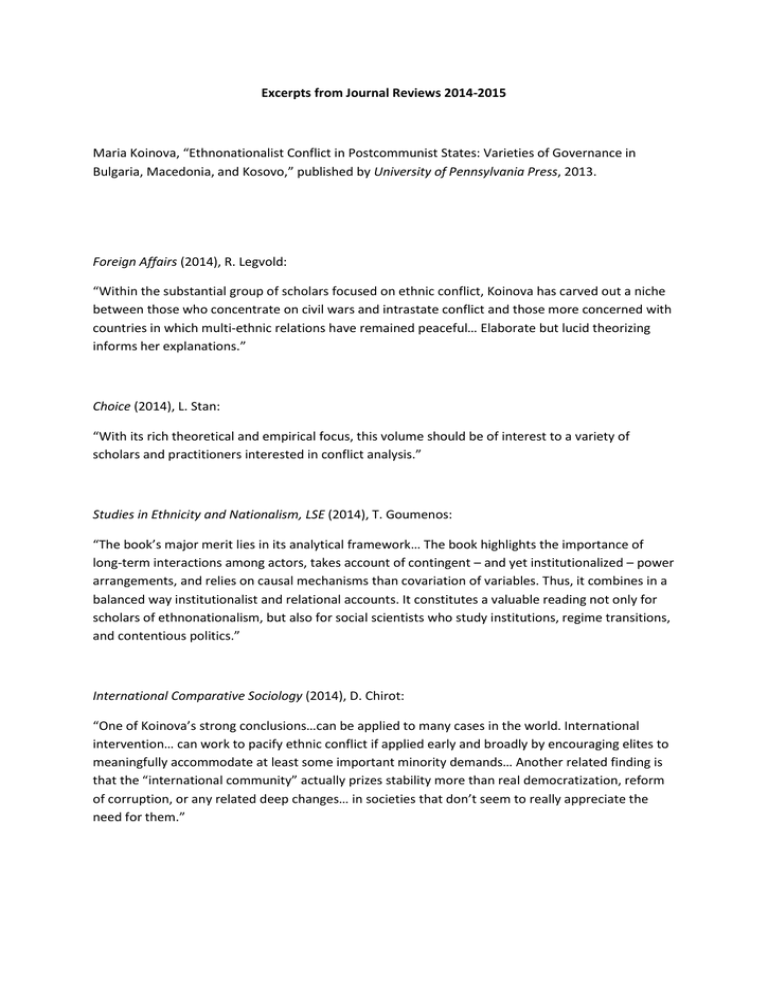
Excerpts from Journal Reviews 2014-2015 Maria Koinova, “Ethnonationalist Conflict in Postcommunist States: Varieties of Governance in Bulgaria, Macedonia, and Kosovo,” published by University of Pennsylvania Press, 2013. Foreign Affairs (2014), R. Legvold: “Within the substantial group of scholars focused on ethnic conflict, Koinova has carved out a niche between those who concentrate on civil wars and intrastate conflict and those more concerned with countries in which multi-ethnic relations have remained peaceful… Elaborate but lucid theorizing informs her explanations.” Choice (2014), L. Stan: “With its rich theoretical and empirical focus, this volume should be of interest to a variety of scholars and practitioners interested in conflict analysis.” Studies in Ethnicity and Nationalism, LSE (2014), T. Goumenos: “The book’s major merit lies in its analytical framework… The book highlights the importance of long-term interactions among actors, takes account of contingent – and yet institutionalized – power arrangements, and relies on causal mechanisms than covariation of variables. Thus, it combines in a balanced way institutionalist and relational accounts. It constitutes a valuable reading not only for scholars of ethnonationalism, but also for social scientists who study institutions, regime transitions, and contentious politics.” International Comparative Sociology (2014), D. Chirot: “One of Koinova’s strong conclusions…can be applied to many cases in the world. International intervention… can work to pacify ethnic conflict if applied early and broadly by encouraging elites to meaningfully accommodate at least some important minority demands… Another related finding is that the “international community” actually prizes stability more than real democratization, reform of corruption, or any related deep changes… in societies that don’t seem to really appreciate the need for them.” Slavonic and East European Review (2014), Pål Kolstø: “Koinova introduces a wide range of analytical tools, such as “conflict mechanisms”, “degrees of violence”, “critical junctures”, “sequencing of events” “exogenous shocks vs. gradual change”…, which she employs in convincing ways to explain political developments, both in the overall picture and in smaller twists and turns.” East European Politics (2015), L. Seymour: “Koinova’s convincing account of how ethnic conflict emerges and perseveres despite international interventions deserves a wide audience… The study makes an important contribution to our understanding of the legacies of (post-) communism and gives us an innovative line of institutionalist explanation with original implications for the study of civil wars and ethnic conflict… An important implication concerns the timing and sequencing of external intervention and the need to get things right during moments of accelerated change that foreclose opportunities for a peaceful future.” Nations and Nationalism (2015), J.D. Iglesias: Based on a rich and critical analysis of the existent literature… the book is well written and follows a very coherent structure. The easy structure facilitates the understanding of conclusions which put remarkably together all the innovations of Maria Koinova’s research… Her most challenging conclusions are linked to the strong assertion that conflict dynamics are more static than in other accounts.”


